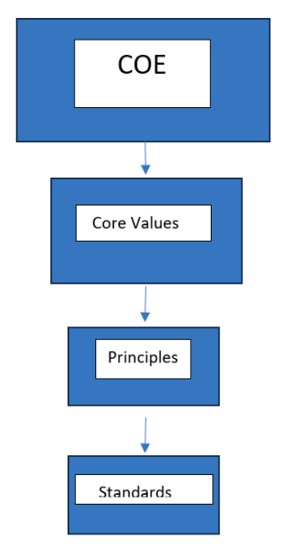
Human development is a continuous process shaped by biological, psychological, and social influences that affect how individuals grow, adapt, and form relationships across the lifespan. For interpreters, understanding Erik Erikson’s Eight Stages of Psychosocial Development provides valuable insight into the challenges, needs, and communication styles that may emerge at different life stages. By examining factors such as brain development, physical and psychosocial milestones, and broader measures like Human Development Index (health, income, and education), interpreters can better recognize how environment and experience shape language use, decision-making, and interaction. This awareness helps interpreters adapt their communication strategies, foster empathy, and build trust with both providers and patients. Ultimately, applying human development concepts strengthens the interpreter's ability to support accurate, culturally sensitive communication and enhances the quality of care across all stages of life.
Objectives
· Interpreters will use Erik Erikson’s stages of psychosocial development to better understand communication needs and challenges with patients at different life stages.
· Interpreters apply knowledge of human behavior, developmental factors, and patient history to facilitate accurate, empathetic, and culturally sensitive communication between providers and patients.
· Interpreters build trust-based, professional relationships by demonstrating empathy, accountability, and respect while maintaining the interpreter’s ethical role boundaries in personal, professional, and social interactions.
CE approval pending for CCHI and IMIA/NBCMI (1 CE Hour)Health literacy is a key factor in determining patient outcomes, yet language barriers and limited literacy skills continue to hinder effective care for many populations. Medical interpreters are on the front lines of this challenge, not only by interpreting and translating but also by helping bridge cultural and educational gaps in understanding. This presentation explores the profound impact of literacy on patient health—how low literacy contributes to miscommunication, medication errors, decreased treatment adherence, and preventable hospital visits. We will focus on the interpreter’s role in recognizing signs of limited health literacy, understanding how literacy affects the Social Determinants of Health, and finding ways to support healthcare providers in building trust and understanding with limited literacy patients. By strengthening the connection between language access and health literacy, interpreters can be powerful advocates for safer, more equitable care.
Objectives:
-To learn about the various aspects of a person’s health.
-To uncover how literacy affects our patients and their health.
-Understand how to spot literacy issues in patients.
-Find ways in which we can assist patients with limited literacy and improve health outcomes
This FREE program is accredited by CEAP for 1.00 CE hour, CEAP accreditation #10891. IMIA CEU accreditation pending.

This two-hour self-paced course addresses the challenges of interpreting for medical and forensic interviews, in cases of suspected child abuse or sexual assault. The presentation explains interviews that may be conducted in a hospital emergency department as well as a Child Advocacy Center. The course explains best practices for healthcare interpreters when working with patients in these contexts. Participants are provided with an overview of the forensic and medical interviews and their processes.
CCHI: 2 accredited hours (ID: 10478).
IMIA/NBCMI: 0.2 CEU (2 hours, ID: 24-1150).
$25 enrollment fee.

Codes of Ethics (COEs) are a set of guiding principles that intend to help individuals in their decision-making process when encountering dilemmas or choosing a best practice. But COEs don't provide guidance on every situation an interpreter might encounter, nor consider the context in which these situations occur. This course describes the role of ethical codes/principles/standards, and describes how interpreters can use critical thinking to navigate ethical dilemmas.
CCHI: 1.5 hours (ID: 10333).
IMIA/NBCMI: 1.5 hours/0.15CEU (ID 23-1255).
$20 enrollment fee.
Not Your Enemy: Bilingual companions and staff can make for challenging encounters but partnering with them and the rest of the medical team can turn them into an asset. This course aims to educate interpreters on how to manage a session effectively when there are other bilingual people present. 1.5 CE hours (CCHI, IMIA/NBCMI. Not approved for WA-DSHS). $20 enrollment fee.
Practitioner-style interpreting vs the interpreter as purely a "message converter." Techniques such as educational scripting, teach-back, visual aids, and interpreter "visibility" to enhance comprehension, trust, and the clinical outcome. 1.5 CE hours (CCHI, IMIA/NBCMI. Not approved for WA-DSHS). $20 enrollment fee.

This course is being retired.
If you have not already enrolled, please consider the replacement course:If you are already enrolled:
- You must complete the course/test/certificate by October 14, 2024.
- Learners who have completed the course and downloaded the certificate will be able to use these CEUs for the remainder of your certification cycle.
- All your certificates are available to you at the "My Certificates" link above.
Course description: Review of the "National Standards of Practice for Interpreters in Health Care" published by the National Council on Interpreting in Health Care (NCIHC) and how interpreters apply these standards in day-to-day work, including mediation/advocacy situations. This independently-produced discussion is not endorsed by NCIHC. 1.5 CE hours for CCHI, IMIA/NBCMI. Not approved for WA-DSHS.
A brief introduction to the ethics of healthcare interpreting, based on prevailing standards set by professional associations in the field. $15 enrollment fee, 1 instructional hour for CEAP/CCHI and IMIA/NBCMI. Not approved for WA-DSHS.
This course addresses general principles that will help in any medical or surgical specialty, and focuses specifically on concepts and vocabulary related to interpreting for patients who require anticoagulant medications.
Today, many patients are prescribed direct oral anticoagulants (DOACs), and for these patients, some course content specific to monitoring in the "Coumadin Clinic" may be less relevant. For some patients, DOACs are contra-indicated, and warfarin (Coumadin) with clinic monitoring remains the treatment of choice.
$25 enrollment fee, 2 instructional hours (CCHI and IMIA/NBCMI).
A webinar recording (audio plus a few slides) on interpreting for providers on inpatient rounds. Presenters are two experienced interpreters at a leading pediatric hospital. $15 enrollment fee, 1 instructional hour (CCHI, IMIA).
Introduction to interpreting for mental health: A recording of a 2019 webinar presented by mental health professionals from Hennepin Healthcare. Overview of the field; how to prepare for a visit; techniques and interventions used in psychotherapy and mental health visits; tips on accurate interpreting in this setting; interpreter self-care. $20 enrollment fee.
CCHI: 1.5 accredited hours (#08868)
IMIA/NBMCI: 0.15 CEU (1.5 hours, #19-1052)
A recorded webinar by an experienced interpreter, sub-titled: "Compassionate Healthcare Interpreters with Boundaries." 1.5 CE hours (Approved by CCHI, IMIA/NBCMI. $20 enrollment fee.
"Building Resilience: A Marathon, Not a Sprint" is a recording of a presentation on emotional self-care for interpreters, delivered as a live webinar in 2020, a year of pandemic and social unrest.
CCHI: 1.5 accredited hours (ID: 9376)
IMIA/NBCMI: 0.1 CEU (1 hour, ID: 20-1170).
$15 enrollment fee.
The challenges of conveying humor appropriately, even when we do not have similar jokes or equivalents in the target language. Recording of a webinar presentation from Spring, 2020. 1.5 CE hours (CCHI, IMIA/NBCMI). $20 enrollment fee.
How to adapt interpreting protocols written for in-person healthcare settings, for working remotely, including what interpreters do at the beginning, during, and at the close of an encounter. $20 enrollment fee.
CCHI: 1.5 accredited hours (#04544).
IMIA/NBCMI: 0.15 CEU (1.5 hours, #19-1096)

An overview of the organs and functions of the gastrointestinal system, including some common diseases, clinical procedures and useful terminology. $35 enrollment fee/30 days access. CCHI: 3 accredited hours (general credit). IMIA/NBCMI: 3 hours (0.3 CEU).
Tips and tricks to help interpreters get more useful results from internet searches (e.g. Google). $15 enrollment fee. 1 instructional hour (CCHI and IMIA/NBCMI).